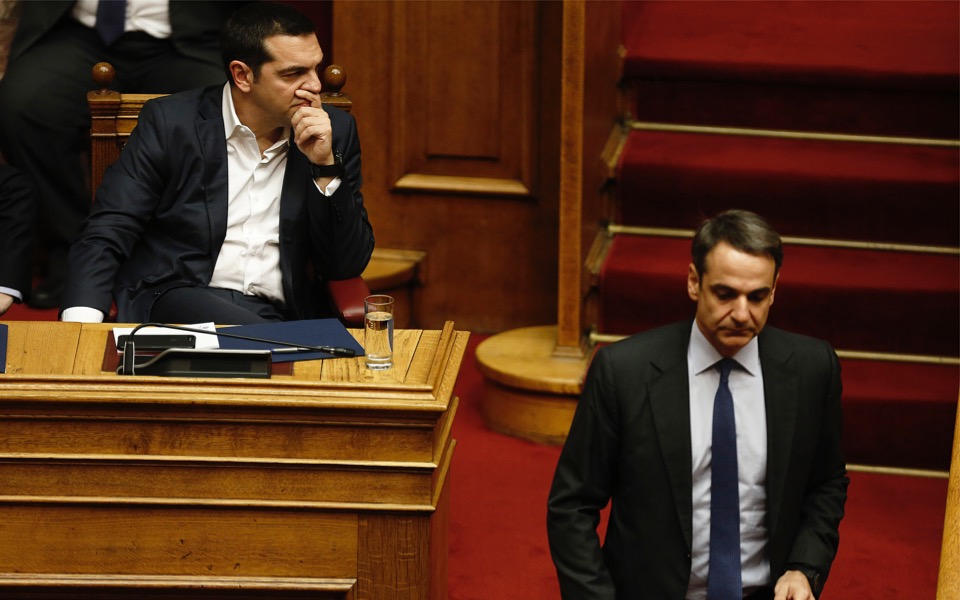‘Macedonia’ issue a lost chance for consensus

If personal and party concerns had not been put above the national interest, the name issue with the Former Yugoslav Republic of Macedonia (FYROM) would have been handled somewhat differently, to say the least.
In this round of talks in particular, the start would have been made with a secret meeting between the closest and most trusted aides of the prime minister and the leader of the main opposition party. After this exploratory discussion the two party leaders would then come together for a serious discussion. There, Prime Minister Alexis Tsipras and New Democracy chief Kyriakos Mitsotakis would assess the landscape formed by the fresh stance of Skopje thanks to the election of the moderate Zoran Zaev. If they deemed that circumstances provided Greece with an opportunity for an acceptable solution to the dispute, then they would forge a common national policy line and plan a strategy. They would work out what each could take to their party and supporters and what they couldn’t, and where each would look to drum up support for the plan. They would also plan on how to maximize Greece’s gains using their lines of communication in Europe – Tsipras with the socialists, Mitsotakis with the center-right parties.
The key to such a national consensus, which would significantly enhance the country’s negotiating position, would have been an agreement between the two party leaders that neither would attempt to use the final result of negotiations with Skopje against the other for domestic political gains. They would also have to agree that once the country achieved the best possible outcome, the prime minister would publicly declare this a joint victory and acknowledge the contribution of his political rival who, at a time of difficult negotiations, opted to wear the colors of Greece rather than those of his party.
From the start, though, Tsipras has sought to use the name issue to divide ND between moderate liberals and the populist right. But national issues should not be dictated by petty political calculations, not least because they also affect the country’s position and role on the global stage – not just now, but into the future too.
There are lots of other major issues over which the government and the opposition can disagree, from the economy, taxes and the role of the state, to issues of security and public safety.
The abovementioned approach did not take place. Instead, in the next few days, weeks and months Greek society will be deeply divided. We will hear a lot of insults and accusations, and some will see their patriotism questioned.
Unfortunately, we will witness this sensitive issue, which has dogged the country for a quarter of a century and should have been dealt with in a more united manner, become the subject of another rabid political confrontation.





